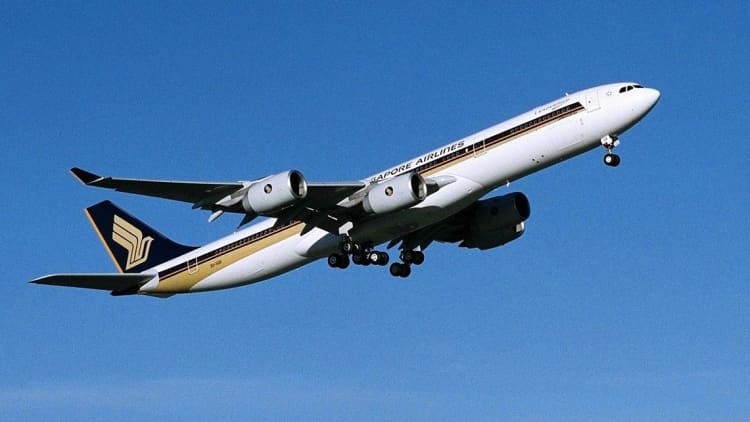After nine years of losing out on the title of the world's best airline, Singapore Airlines is back on top.
More than 20 million passengers participated in a survey commissioned by London-based aviation consultancy Skytrax to vote the carrier for the prestigious award.
Last year's winner, Qatar Airways, took second place while Japan-based All Nippon Airways (ANA) clinched third.
This is the fourth time that Singapore Airlines has won the coveted award and is its first win since 2008.
The recognition is especially sweet as the airline has battled challenging conditions in the aviation industry and intense competition, particularly from deep-pocketed Middle Eastern carriers.
On the financial front, the last few years have been turbulent for the airline. Its profitability came into sharp public focus when it posted a surprise loss last year — its first quarterly loss in five years.
The net loss of $99 million (S$138 million) prompted the company to embark on a three-year transformation program to review its entire business.
The review included new ways of managing costs efficiently with fresh pricing policies such as charging some travelers for selecting seats in advance.
While the seat selection policy stirred debate among travelers used to Singapore Airlines' premium perks, the transformation appears to have borne fruit.
This year, the company reported its highest profit in seven years, making $666 million (S$893 million) in the year ended March.
Singapore Airlines is known for being a pacesetter in the industry, and it's still trying to stay ahead of the competition.
This year, it became the first airline to launch a digital wallet powered by blockchain technology, which allows its members to use frequent flyer miles to pay for facials, sandwiches and even gas.
Nitin Pangarkar, a professor at the National University of Singapore, said that it was not a surprise that the airline won the award, as it has a reputation as the gold standard in service.
He said that while the award "changes things at the margin," he is more concerned about the airline's profitability.
"They have done better this year than they have done for the last three, four years. Is that the beginning of a trend? I don't know," he said, noting that oil prices are rising. "Their main challenge is profitability and doing something novel."
These are difficult challenges for airlines to deal with, he said, adding that innovation in the aviation industry is quickly adopted by other airlines.
Furthermore, air fares have come down significantly, reducing profit margins while costs have stayed the same or increased.
"Good service and profitability definitely do not have a correlation of 1.0," Pangarkar said.



